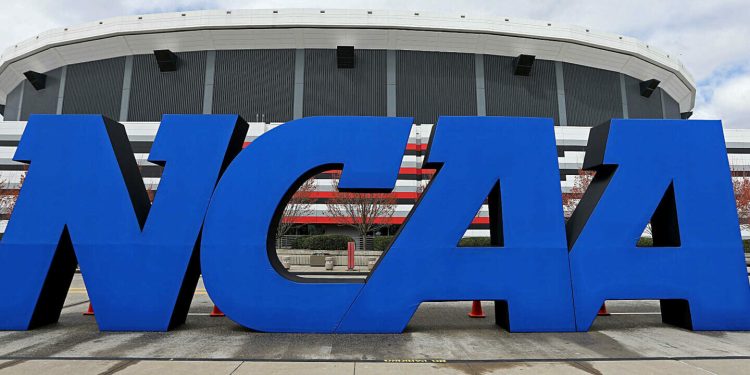NCAA Bans Transgender Women from Women’s Sports Following Trump’s Executive Order
The NCAA has announced an immediate ban on transgender women from competing in women’s sports, aligning itself with an executive order signed by former President Donald Trump just a day prior. This decision has sparked intense debate and criticism, highlighting the ongoing national conversation about transgender rights in athletics.
The NCAA’s new policy states, “A student-athlete assigned male at birth may not compete on a women’s team,” establishing eligibility based on sex assigned at birth as noted on official records. Previously, the NCAA had permitted transgender women to compete provided they adhered to specific testosterone limits, a policy that has now been overturned.
Trump celebrated the NCAA’s decision, declaring on social media, “IT IS NOW BANNED!” He framed the ban as a victory for fairness in women’s sports, asserting, “Men should have NEVER been allowed to compete against women in the first place.” The former president further anticipates that the Olympic Games will follow suit, reinforcing his stance in the ongoing political discourse surrounding transgender athletes.
While the policy change affects only a small number of athletes—reportedly fewer than ten transgender individuals among the 530,000 competing across NCAA member schools—it has ignited significant backlash from LGBTQ rights organizations. Advocates for Trans Equality criticized the NCAA for its compliance with what they describe as a “blatantly discriminatory and unconstitutional policy.”
The NCAA’s swift response to Trump’s executive order reflects the organization’s desire for a clear national standard amid a confusing landscape of conflicting state laws and court rulings. Following the executive order, the NCAA emphasized that member schools would be responsible for certifying athlete eligibility and that the policy would apply across all gender-separated sports.
In contrast, transgender men remain eligible to compete in men’s sports as long as they meet other eligibility criteria. However, transgender women who have begun hormone therapy, such as testosterone treatments, will not be allowed to join women’s teams.
This latest move by the NCAA is part of a broader trend as Trump has issued several directives aimed at rolling back transgender rights, including previous bans on military service for transgender individuals and attempts to restrict healthcare related to gender transitions for minors. These actions have faced legal challenges and have intensified debates around LGBTQ rights in America.
The International Olympic Committee (IOC) has yet to take a definitive stance on the new executive order, stating it will continue discussions with relevant authorities while maintaining its current policy allowing transgender athletes to compete fairly.








